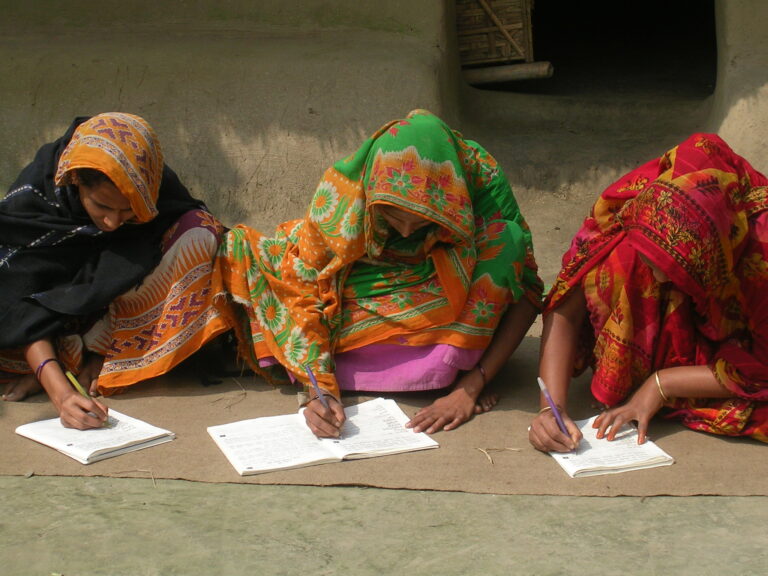By David Vance
As we recently observed another International Literacy Day (8 September, 2022) it’s good to pause and think about literacy, particularly in the context of the work of Symbiosis with poor and marginalised people in Bangladesh.
Teaching adult men and, particularly, women to read and write in their own language has been at the core of the Symbiosis work in Bangladesh since Symbiosis began about 27 years ago, and many of us have seen firsthand how life-changing it can be for adults in that country.
Often in the western world, I think we forget what literacy means to us, how vital it is, and how difficult life would be if we were illiterate and innumerate.
For poor women in Bangladesh who can’t read or do basic sums, they rely on others, often men, to explain to them medical and medication instructions, Government directions, legal situations, benefits and responsibilities, and they have to trust men in daily purchasing transactions.
This level of dependency depicts and, in some places, reinforces women as second-class citizens. Illiteracy is a source of shame and defeat because it disempowers them to provide a better life for their family.
And, of course, having to walk around for days with dark ink on a thumb when you’ve had to make a thumb print on a business document or when voting is a reminder to your community that you can’t write!
Progress
In general, Bangladesh has done a good job of improving the literacy levels of its people, increasing from about 17% in 1971, to 35% in 1990, to about 74% in 2022. This is a great achievement, although it does still leave Bangladesh at between 120 and 130 on the scale of adult literacy in the world, compared to an average of 86% for the world.
However, when you dig into the figures a bit more, the situation is a little more complex than just 74%, as it always is with figures. Symbiosis survey work in Bangladesh has shown that while adult literacy rates in and around Dhaka are high, literacy rates in some of the northern areas and villages where we have recently started work, such as Dhobaura and Haluaghat, are much lower, even as low as 30%.
Symbiosis has found over many years that providing marginalized people with a functional education is a critical step in breaking the cycle of poverty and enabling those with whom we work to begin building a more stable future for themselves, their families, and their communities.
It enables women, in particular, to interact much better with businesses, Government and medical providers, and ensure that they do get good and reliable advice. It enables genuine empowerment.
Even more importantly, once having tasted education and knowledge for themselves, these parents are more likely to make sure that their own children progress as far as they can in the public education system.
About the Author: David Vance has supported Symbiosis International as a Board Director, Volunteer and Aquaculture expert for over 18 years. His most recent trip to Bangladesh was in July 2022, where he spent time meeting with staff members of social enterprise projects and listening to the stories of self-help and CBO group members.
